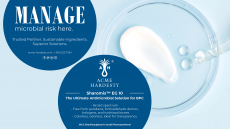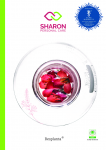Method developed to avoid caffeine and iodide intoxication in anti-ageing creams
Cellulite reduction cosmetic products contain agents to increase blood flow through the microcapillaries, increase the metabolism of fat loss or reduce fat formation. And caffeine and iodide are two such ingredients.
The problem arises as they add to the total intake of the consumer, especially those who take algal supplements, which contain iodine, as well as those on medications of various types.
Therefore the researchers stress that the presence of these substances in cosmetics available in the market should be taken into account in order not to exceed the limits allowed when co-administered with drugs or dietary supplements, in order to avoid eventual acute or chronic intoxications.
When in Rome…
“Special tests should be conducted on cellulite reduction cosmetic products to determine if the iodide and/or caffeine concentrations present in these products provide an increase in the daily intake amount and may be harmful for the consumers,” says Simona Pichini, co-author of the study.
The scientists developed two simple liquid chromatography (LC) separation methods coupled with ultraviolet diode array (UV-DAD) and an electrospray ionisation mass spectrometry (ESI-MS) detection to determine the caffeine and iodide content in anti-ageing products.
The compounds were separated by reversed phase chromatography with water (0.02% trifluoroacetic acid) and acetonitrile gradient elution and detected by UV-DAD at 254 nm and by ESI-MS ionization mode positive for caffeine and negative for iodide; with paracetamol used as internal standard.
The two methods were successfully applied to a number of cellulite reduction cosmetic products freely sold in European herbalist shops, perfumeries and supermarkets.
Exposure
The content of iodide ranged from 0.3-6.8 mg/g cream, whereas that of caffeine was higher and covered a broader range at 0.33-60.88 mg/g.
The research team suggests that these levels should be taken into account when considering the personal iodide exposure of individuals in the context of the current official recommendations which are 150 µg/day for iodine.
There are no reported restrictions for caffeine but excess use of the cellulite reduction products along with excessive coffee drinking or the intake of caffeine-containing medications could lead to problems like irritability, insomnia and cardiac arrhythmia.
“Consumers who use the cellulite reduction products liberally and often might begin to approach unhealthy body levels,” says the study.
The two methods are the first to allow the simultaneous measurement of caffeine and iodide in cellulite reduction cosmetics.
Measurement of iodide and caffeine content in cellulite reduction cosmetic products sold in the European market: Emilia Marchei , Daniela De Orsi , Carmine Guarino , Stefano Dorato , Roberta Pacifici and Simona Pichini; Anal. Methods, 2013, Advance Article












